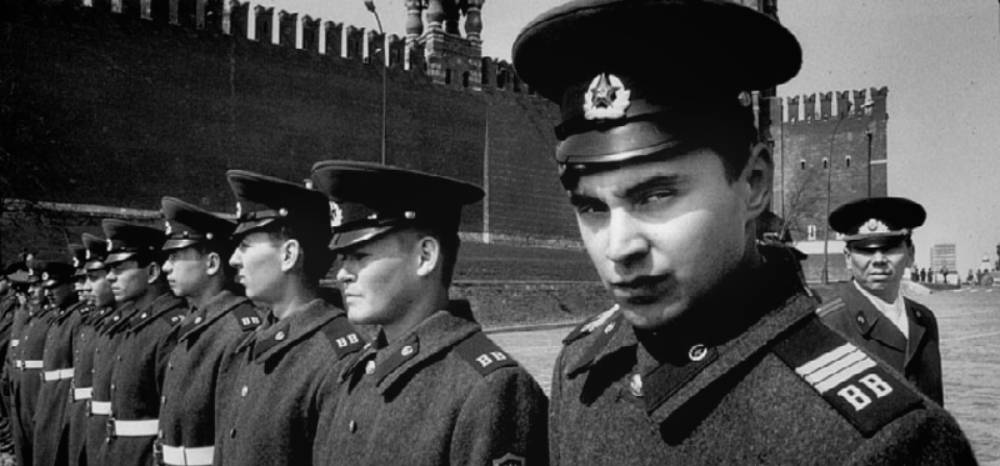Intelligence agencies fight secret wars. Wars in which the public often knows little about, wars in which mainstream media propagandizes its own citizens to keep the sins of the government out of sight. For the past few decades, ever since the fall of the Soviet Union, the Central Intelligence Agency has waged one of the most brutal wars on mankind, even on Americans. But now, the KGB returns.
[fvplayer src=”https://player.vimeo.com/external/183389927.sd.mp4?s=84df388018f8b55e97ca2a80dc625435ee556200&profile_id=165″ splash=”https://christianjournal.net/wp-content/uploads/2016/09/kgb-1.jpg” playlist=”https://player.vimeo.com/external/183390566.sd.mp4?s=dff4302f747dbde873715d7afcf9b80e89d59102&profile_id=165,https://christianjournal.net/wp-content/uploads/2016/09/uri.jpg”]
According to a respected business daily, and the Telegraph, Russia plans to effectively revive the KGB. “A State Security Ministry, or MGB, would be created from the current Federal Security Service (FSB), and would incorporate the foreign intelligence service (SVR) and the state guard service (FSO), under the plans. It would be handed all-encompassing powers once possessed by the KGB, the Kommersant newspaper said, citing security service sources.”
Like the former KGB, the new one will also oversee the prosecutions of Kremlin critics, a task which is currently undertaken by the Investigative Committee. What will be called the MGB, is expected to enter operation before the 2018 presidential elections in Russia. Putin is supposed to maintain power and secure a fourth term, which would keep him in office until 2024.
Putin served as a KGB officer in Soviet-era East Germany and is also thought to have been responsible for keeping tabs on dissidents in the now St Petersburg area. Putin also headed the FSB from July 1998 until August 1999 before he became Prime Minister. Putin has stated there is no such thing as a former KGB agent.
The KGB’s primary functions were foreign intelligence, counterintelligence, operative-investigatory activities, Guarding the State Border of the USSR, guarding the leadership of the Central Committee of the Communist Party and the Soviet Government, organization and ensuring of government communications as well as combating nationalism, dissent, and anti-Soviet activities. After the dissolution of the USSR, the KGB was split into the Federal Security Service and the Foreign Intelligence Service of the Russian Federation.
“The KGB was one of the strongest special services in the world – everyone recognised this,” Sergei Goncharov, who served in Russia’s now disbanded Alpha counter-terror unit in the 1990s, told state media. Mr Goncharov also said the creation of the MGB would provide Russia with a “strong fist” overseen by a unified leadership.
Kremlin critics were horrified by the possible rebirth of an organisation synonymous in Russia with political oppression. “It’s time to get out [of the country],” wrote Elshad Babaev, a Twitter user. “Anyone who can should take the opportunity.”
The KGB was just one of the many incarnations of the Soviet Union’s feared secret police service, which was founded in 1917 as the Cheka.
The MGB is not a new designation, It was the name of the state security apparatus for eight years during Joseph Stalin’s bloody rule. It was renamed the KGB after Stalin’s death, and disbanded in 1991, following the collapse of the Soviet Union, when its powers were distributed among a number of newly-created security services.
With the revival of the KGB, and the continual onslaught of the CIA’s crimes; the secret wars of the world are about to get a bit bloodier as the road winds to World War Three.
Works Cited
Marc Bennetts. “Russia 'to revive the KGB' after Putin wins biggest majority.” The Telegraph . . (2016): . . http://bit.ly/2dbWH4Y


![[VIDEO] Drag Queen Drag Shows Are Now Infesting Churches](https://christianjournal.net/wp-content/uploads/2019/11/Screenshot-2019-11-22-at-9.02.01-PM-218x150.png)
![[VIDEO] Starbucks Worker Dumps Milkshake On Open Air Preachers Head](https://christianjournal.net/wp-content/uploads/2019/11/Screenshot-2019-11-22-at-7.23.43-PM-218x150.png)
![[VIDEO] Man Arrested For Threatening To Kill Female Abolitionist With Crowbar](https://christianjournal.net/wp-content/uploads/2019/11/MLock-1-218x150.jpg)
![[VIDEO] Drag Queen Drag Shows Are Now Infesting Churches](https://christianjournal.net/wp-content/uploads/2019/11/Screenshot-2019-11-22-at-9.02.01-PM-100x70.png)
![[VIDEO] Starbucks Worker Dumps Milkshake On Open Air Preachers Head](https://christianjournal.net/wp-content/uploads/2019/11/Screenshot-2019-11-22-at-7.23.43-PM-100x70.png)
![[VIDEO] Man Arrested For Threatening To Kill Female Abolitionist With Crowbar](https://christianjournal.net/wp-content/uploads/2019/11/MLock-1-100x70.jpg)


